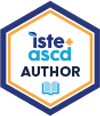
Event Information

Other presentations in this group:
The theoretical framework for this study originates in the Scholarship of Teaching and Learning (SoTL) approach (Yeo, Miller-Young, & Manarin, 2024) that focuses on educators examining student learning in detail for the purposes of improving designed learning experiences, courses, and programs. Within the array of Mixed-Methods Research Studies associated with the SoTL framework, this study utilized a sequential explanatory mixed methods design.
The research was a sequential explanatory mixed methods design. Data sources consisted of quantitative data from a survey as well as qualitative data from focus groups and content analysis of social media.
The first phase of the study entailed collecting data from a survey about K-20 educators’ practices, follow-up focus groups, and a high-level overview of a professional learning network on social media. We selected a variety of data sources to capture educators’ current practices in using GenAI with a more detailed inquiry enabled by focus groups. The purpose of the content analysis was to understand the types of interactions, questions, and concerns that like-minded educators share in an informal professional learning community.
Based on the analysis of the Facebook posts discussing the use of Generative AI in higher education, several types of instructional applications are being discussed. Here are the key instructional applications identified:
1. AI in Teaching and Learning Methods:
- Enhancing traditional teaching methods with AI tools.
- Personalized learning experiences for students using AI.
- Using AI to create adaptive learning environments.
2. AI for Assessment and Evaluation:
- Automating grading and providing instant feedback.
- Developing AI-driven assessment tools to evaluate student performance.
- Using AI to create more accurate and unbiased assessments.
3. AI for Student Engagement and Motivation:
- Implementing AI to increase student engagement in online and hybrid classrooms.
- Using AI chatbots to keep students motivated and on track with their studies.
4. AI for Curriculum Development:
- Leveraging AI to design and update curriculum content.
- Using AI to identify gaps in the curriculum and suggest improvements.
While there is a substantial body of research on formal teacher professional development, the study of informal, self-directed learning networks and ecologies (Macià & García, 2016) remains underdeveloped. The significance of the study: The use of GenAI has the potential to transform teaching and learning. Our work contributes to the understanding of emerging practices and pedagogy in higher education.
Adams, C., Pente, P., Lemermeyer, G., & Rockwell, G. (2023). Ethical principles for artificial intelligence in K-12 education. Computers and Education: Artificial Intelligence, 4, 100131.
Bahroun, Z., Anane, C., Ahmed, V., & Zacca, A. (2023). Transforming education: A comprehensive review of generative artificial intelligence in educational settings through bibliometric and content analysis. Sustainability, 15(17), 12983.
Baidoo-Anu, D., & Owusu Ansah, L. (2023). Education in the era of generative artificial intelligence (AI): Understanding the potential benefits of ChatGPT in promoting teaching and learning. SSRN Electronic Journal. https://doi.org/10.2139/ssrn.4337484
Celik, I., Dindar, M., Muukkonen, H., & Järvelä, S. (2022). The promises and challenges of artificial intelligence for teachers: A systematic review of research. TechTrends, 66(4), 616-630.
ChatGPT for Teachers. (n.d.). Home [Facebook page]. Facebook. Retrieved October 13, 2023, from https://www.facebook.com/groups/703007927897194
Chiu, T. K., Xia, Q., Zhou, X., Chai, C. S., & Cheng, M. (2023). Systematic literature review on opportunities, challenges, and future research recommendations of artificial intelligence in education. Computers and Education: Artificial Intelligence, 4, 100118.
Dell’Acqua, F., McFowland, E., Mollick, E. R., Lifshitz-Assaf, H., Kellogg, K., Rajendran, S., Krayer, L., Candelon, F., & Lakhani, K. R. (2023). Navigating the Jagged Technological frontier: Field experimental evidence of the effects of AI on knowledge worker productivity and quality. SSRN Electronic Journal. https://doi.org/10.2139/ssrn.4573321






